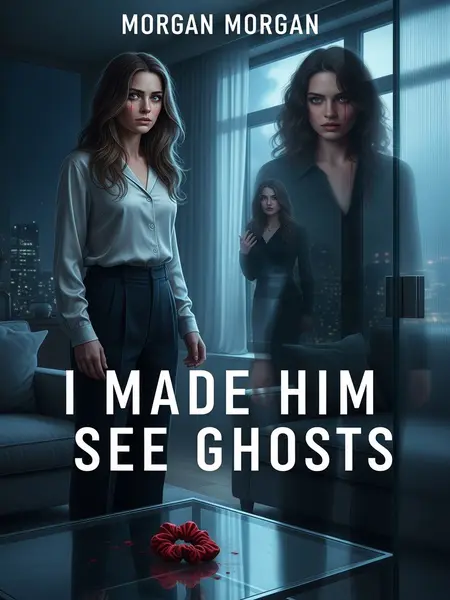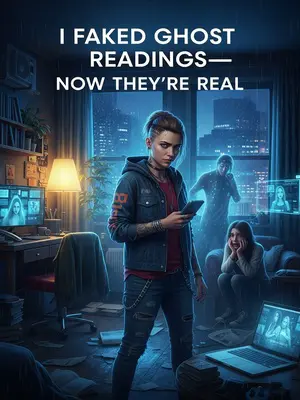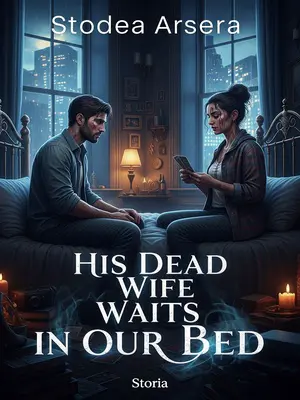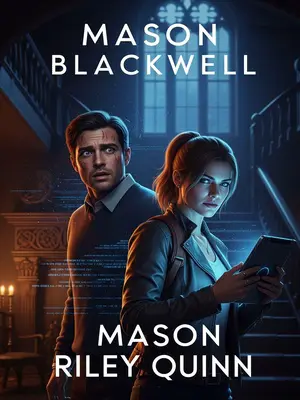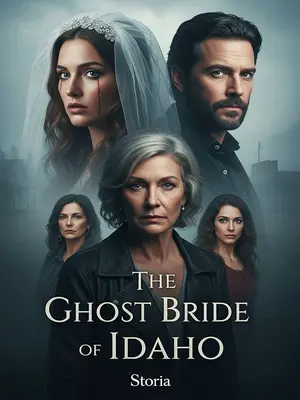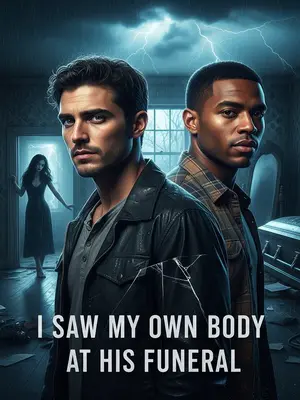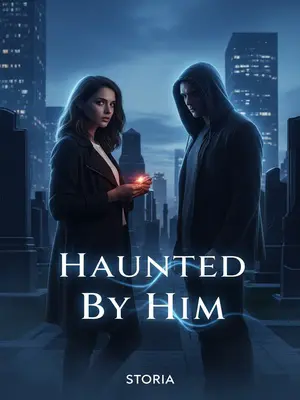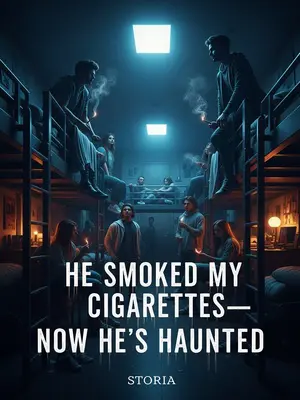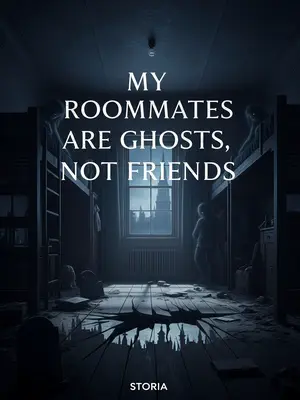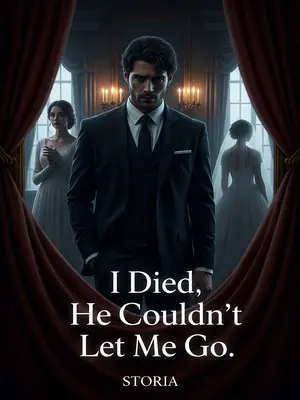Chapter 3: Hauntings at 3 a.m.
But ever since that red scrunchie showed up, strange things kept happening.
It started small—misplaced keys, flickering lights, cold drafts in the hallway. Mark grew jumpy, paranoid. I watched, quietly amused.
Maybe it was true—what goes around comes around. He’d hurt too many women, and I, as his accomplice, was bound to get my share.
I started to believe in karma, in cosmic justice. Maybe the universe was finally evening the score.
Emily’s red scrunchie first appeared on Mark’s toothbrush. Mark was convinced Emily had snuck into our home and left it there.
He tore the house apart, searching for signs of a break-in. He accused me, the cleaning lady, even the dog. I played innocent.
But Emily had died the day before.
The timing was impossible. The fear in Mark’s eyes was real.
Mark and I checked the front door’s security footage from the past 24 hours.
We huddled over the laptop, fast-forwarding through hours of nothing. Mark’s hands shook, his breathing shallow.
All day, no one but the two of us had come in or out.
The footage was clear—no visitors, no deliveries, no Emily. Mark’s face went pale.
I tossed the scrunchie in the fireplace and soothed Mark to sleep. "There are no ghosts in this world. Get some rest."
I stroked his hair, murmured comforting lies, and watched as the flames devoured the red band. The smell of burning fabric lingered long after he drifted off. I sat there, staring into the ashes, wondering if I believed myself.
That night, I slept especially deeply. When I woke, I felt someone pressing down on me. I tried to get up but couldn’t.
It was like being trapped underwater, every limb heavy, every breath a struggle. I tried to scream, but my mouth wouldn’t open.
My eyelids felt glued shut, no matter how hard I tried.
Panic clawed at my chest. I could hear Mark breathing beside me, shallow and fast.
It wasn’t until Mark let out a blood-curdling scream that I snapped awake.
He bolted upright, eyes wild, clutching his right wrist like it was on fire.
He was clutching his right wrist, yelling, "There’s a ghost! I swear there’s a ghost!"
His voice cracked, raw with terror. I scrambled out of bed, heart pounding.
I stared at his right wrist, cold sweat pouring down my back. Wrapped around it was a blood-red scrunchie.
The band was tight, digging into his skin. Drops of blood seeped from beneath it, staining the sheets.
Mark tore it off and threw it away, only to find a blood-red ring imprinted on his skin.
The mark pulsed, angry and swollen. Mark scrubbed at it, tears streaming down his face.
The scrunchie kept oozing blood.
It dripped onto the tile, pooling at his feet. I felt sick, dizzy, like I was watching a nightmare come to life.
It was impossible to tell if the blood had always been inside it, or if it was seeping out of Mark’s wrist.
Mark whimpered, clutching his arm. I tried to comfort him, but my hands were shaking too.
I said, "No way. I burned that scrunchie last night—the ashes are still in the fireplace."
I glanced at the fireplace, the ashes still gray and undisturbed. My mind spun, searching for any logical explanation.
Mark scrubbed his wrist over and over in the bathroom, but the red mark wouldn’t come off.
He used soap, bleach, even a pumice stone. Nothing worked. His skin grew raw, but the mark stayed.
From that day on, the red scrunchie was like a curse, popping up randomly around us.
It was everywhere—on his shoes, wrapped around the car’s gearshift, tucked under pillows. Every time I found one, my heart skipped a beat.
It got so bad, Mark started wearing gloves just to touch things. I watched him, caught somewhere between horror and fascination.
Mark tracked down one of Emily’s friends and said he’d confirmed that Emily had jumped from the ninth floor of the hotel where they’d always met. He hired a private investigator to double-check. They both swore it was true. Emily was gone—but her ghost lingered.
This was getting way too creepy.
Mark, usually fearless, even brought in a pastor to pray over the house and carried a silver cross for protection.
He went to church every Sunday, clutching the cross like a lifeline. He begged the pastor to bless the house, sprinkle holy water on every doorway.
Still not satisfied, he paid a fortune for a silver dagger to ward off evil.
He ordered it online, overnight shipping, tracking the package obsessively. When it arrived, he slept with it under his pillow.
And you know what? Sometimes, better safe than sorry.
I let him have his rituals. It was easier than arguing.
After he got that cross, the red scrunchie stopped showing up.
For a few days, the house was quiet. Mark started to relax, almost believing the worst was over.
Mark and I started sleeping soundly again.
We fell into a routine—work, dinner, TV, bed. I almost let myself believe we were normal.
Life seemed to return to normal.
But the tension lingered, like a storm waiting to break.
Until a week later, early in the morning, Mark was curled up in bed with me, shivering under the covers.
I woke to the sound of his teeth chattering, his arms wrapped around himself. The room was freezing, though the heat was on.
I saw the bed and floor were covered in red scrunchies—like a collection of deadly collars.
They were everywhere—on the headboard, tangled in the sheets, scattered across the carpet. My heart raced.
And that wasn’t even the scariest part.
What really chilled me was the look in Mark’s eyes—utter, bone-deep terror.
Mark, trembling, handed me his phone. In his Messenger chat with Emily, she had "poked" him at 3 a.m.
The notification glowed on the screen, mocking us. Mark’s hands shook as he passed me the phone.
I said, "Wasn’t that the time Emily jumped?"
The words hung in the air, heavy as lead. Mark’s face crumpled. He started to sob.
Mark threw off the blanket and started frantically picking up scrunchies from the floor.
He tossed them into the trash, the fireplace, even out the window. Nothing helped. They kept coming back.
I crawled off the bed. "Honey, don’t be scared. Let’s just block her account."
I tried to sound soothing, but my voice was thin. I took his phone, hands trembling.
Mark said, "Yeah, block her—do it now."
He hovered over my shoulder, eyes darting around the room. I pressed "block," praying it would work.
He didn’t go to the office that day, turning the house upside down.
He searched every closet, every drawer, convinced Emily was hiding somewhere. He even checked the attic, though we’d never used it.
He begged me to host a company meeting in his place. The other VPs had already arranged everything; I just had to show up.
He clung to me, pleading. I wanted to refuse, but I saw the desperation in his eyes.
For the sake of the child, for the assets, I agreed.
I told myself it was just business—another sacrifice for the greater good.
Luckily, I’d helped build the company from the start, so I was familiar with the business.
I dusted off my old notes, reviewed the latest reports, took a deep breath, and put on my game face.
I led a few meetings, met with some investors.
They seemed surprised to see me, but welcomed my presence. I handled questions with calm precision, masking the chaos at home.
But the next morning, something even stranger happened.
I woke to the sound of Mark screaming. I rushed to the living room, heart pounding.
The account we’d blocked yesterday was back in Mark’s messages.
There it was—Emily’s name, her profile picture, the "poke" notification. Mark stared at the screen, lips trembling, his face ashen.
At 3 a.m., Emily "poked" him again.
The same time, every night. Like clockwork. Mark started to unravel.
No words, no replies to calls or texts, no response—just the "poke" every night at 3 a.m.
He tried calling, texting, even emailing. Nothing. Just silence—and the relentless pokes.
Mark tried everything—blocking, deleting, muting. The account kept showing up, like a ghost, right on schedule.
He reset his phone, changed passwords, even bought a new SIM card. Nothing worked. The pokes kept coming, night after night.
Desperate, he reached out to a buddy who worked at Facebook for help.
He called in every favor, begged for answers. The tech guy was stumped.
After hearing Mark’s story, even the tech guy was baffled.
He’d never seen a Messenger bug like this. All he said was, "There’s no explanation—unless it’s a ghost."
Mark’s face went white. He hung up, hands shaking, sweat beading on his forehead.
The nightly 3 a.m. "poke" drove Mark to the edge. With a crucial funding meeting coming up, he handed most of the company’s meetings over to me.
He was a shell of himself—paranoid, exhausted, barely coherent. I took over, running the show while he hid at home.
With the child as leverage, I had no choice but to comply.
I reminded myself daily—this was temporary. I just had to hold on until the deal closed.
Fortunately, compared to the aggressive, egotistical Mark, investors seemed to prefer my steady, thoughtful approach.
They complimented my poise, my attention to detail. I felt a strange sense of pride, even as my world crumbled.
No matter what, I had to hold the company together during this critical period.
I worked late, skipped meals, barely slept. But I got the job done.
Watching Mark waste away day by day, I actually felt a twinge of pity.
He was still my husband, after all. I remembered the man he used to be—the man I thought I loved.
No matter how badly he’d treated me, we were still husband and wife. I couldn’t help but care.
I brought him soup, stroked his hair, whispered reassurances. Part of me hoped he’d snap out of it. Part of me hoped he wouldn’t.
Emily’s haunting was probably because Mark had done something unforgivable—she couldn’t rest in peace.
Was that really it? I wondered. Or was this just the universe evening the score?
I suggested he visit Emily’s grave and leave flowers.
It felt like the right thing to do—an offering, a plea for forgiveness.
If Emily could rest, maybe Mark and I could too.
I asked around and found her grave.
It was a small plot, tucked away in a quiet corner of the cemetery. The grass was overgrown, the headstone simple. The place felt heavy, the air thick with silence.
We bought a huge wreath and a bouquet of roses, leaving them for Emily.
Mark’s hands shook as he placed the flowers. He whispered something I couldn’t hear. I stood back, letting him have his moment.
As soon as we finished, Mark dragged me away in a panic.
He kept glancing over his shoulder, eyes darting. He nearly tripped over a headstone in his haste to leave.
He said he’d seen a woman in white near the cemetery—it looked just like Emily, he swore.
His voice was barely a whisper, thick with fear. I squeezed his hand, unsure what to say.
But the offering didn’t bring peace. It only seemed to make her angrier.
The nights grew colder, the air heavier. Mark’s nightmares returned with a vengeance.
One night, while I was sleeping in the bedroom, Mark came home late and found a funeral wreath in the living room, with a stack of sympathy cards on the coffee table.
The scent of lilies filled the air, cloying and sweet. The cards were handwritten, each one addressed to Mark. He collapsed onto the couch, sobbing.
The wreath and cards were identical to what we’d left for Emily.
I stared at them, my heart pounding. The hair on my arms stood up. I gathered them up, hands shaking, and stuffed them into a trash bag.
This time, even I couldn’t come up with a rational explanation.
For a second, I wondered if I was losing it too.
I could only grit my teeth, ignore it, and focus on the company.
Work became my refuge, my escape. I buried myself in spreadsheets and strategy sessions.
The day of the first funding meeting, I told Mark to get some exercise to recover his nerves.
He protested, but I insisted. Fresh air, I said, would do him good.
He changed into workout gear and went for a run.
I watched him from the window, his figure small against the city skyline. I wondered if he’d ever really come back.
When he came back, he collapsed at the door, pointing at the floor-to-ceiling window behind me, screaming, "Honey, Emily’s behind you!"
His voice was raw, desperate. I spun around, heart pounding, but saw only my own reflection.
I turned—nothing.
Just the city lights, the river glinting in the distance.
I touched his forehead—maybe he’d caught a chill.
He was burning up, sweat soaking his shirt. I led him to the couch, trying to calm him down.
Mark said, "White dress, long hair, pale face, red scrunchie—it was Emily! Didn’t you see her?"
His words tumbled out in a rush. I shook my head, trying to reassure him.
I turned to the window, shook my head.
He stared at me, eyes wide with disbelief. I forced a smile, hiding my own fear.
He rushed into the bedroom, grabbed the silver dagger.
He brandished it like a weapon, backing away from the window. I watched, helpless.
He walked back to the living room, eyes vacant. "She’s gone again."
He slumped onto the couch, dagger still clutched in his fist. I sat beside him, unsure what to say.
He waved the dagger, inching toward the window.
I put a hand on his arm, gently pulling him back. "It’s okay, Mark. She’s not here."
There was nothing there—except a red scrunchie on the floor.
I paused, heart thumping, before picking it up and tossing it into the trash with the others.
That whole night, Mark stood guard at the bedroom door, dagger in hand.
He refused to sleep, pacing the hallway until dawn. I lay in bed, listening to his footsteps, praying for morning.
Nothing happened, except for the usual 3 a.m. "poke."
The notification buzzed, relentless as ever. Mark’s hands shook as he turned off his phone.
Of course, Mark skipped the first meeting. I handled the negotiations with the investors and board.
I dressed in my sharpest suit, put on my brightest smile, and faced the room full of sharks. I held my own.
When I got home, I comforted him. "Don’t worry about the company. The first round went well."
He clung to me, tears streaming down his face. I stroked his hair, whispering reassurances.
Mark was as pale as a ghost, lips cracked and white, eyes completely bloodshot.
He hadn’t slept in days. His hands trembled, his voice barely a whisper.
He curled into my arms. "Thank you, honey."
He sounded like a child, lost and afraid. I held him, my heart aching.
After that, Mark kept claiming he could see Emily—sometimes at home, sometimes downstairs.
He described her in detail—white dress, pale skin, hair tied with that damned red scrunchie. Each time, his fear grew.
White dress, pale face, long hair tied with a red scrunchie.
The image haunted both our dreams. I started to jump at shadows, flinching at every unexpected sound.
By now, Mark was like a scrunchie stretched to the breaking point—one more tug and he’d snap.
I wondered if he’d ever recover, or if this was the new normal.
But that final tug wasn’t from Emily. It was from Mark himself.
In the end, it was his own weakness that destroyed him.
No one expected that, even in this state, Mark was still thinking about meeting women.
I found texts on his phone—flirtations, plans, invitations. Even haunted, he couldn’t stop himself.
